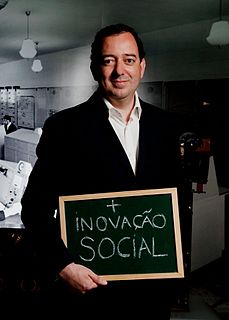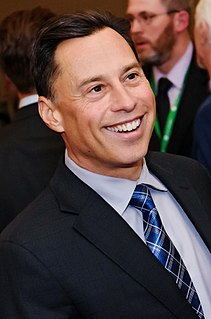A Quote by Tae Yoo
Social incubators not only create economic impact but also have impact across sectors, such as healthcare, education, and the environment. As the interest in social innovation increases, there is a greater need to help existing programs improve and build new programs.
Related Quotes
Higher minimum wages, full-employment programs, early-childhood education: Those kinds of programs are, by design, universal, but by definition, because they are helping folks who are in the worst economic situations, are most likely to disproportionately impact and benefit African Americans. They also have the benefit of being sellable to a majority of the body politic.
In the eighties and nineties, the innovation agenda was exclusively focused on enterprises. There was a time in which economic and social issues were seen as separate. Economy was producing wealth, society was spending. In the 21st century economy, this is not true anymore. Sectors like health, social services and education have a tendency to grow, in GDP percentage as well as in creating employment, whereas other industries are decreasing. In the long term, an innovation in social services or education will be as important as an innovation in the pharmaceutical or aerospatial industry.
One question I often ask is why the church doesn't set aside funds specifically to seed new ideas. A lot of our money tends to go into existing, literally physical buildings, or existing parishes, programs, and schools, and we have nothing that is very explicitly dedicated toward new ventures of all kinds that would help parishes, help education, help catechesis.
Programs of a political nature are important end products of social quality that can be effective only if the underlying structure of social values is right. The social values are right only if the individual values are right. The place to improve the world is first in one's heart and head and hands, and then work outward from there.

































